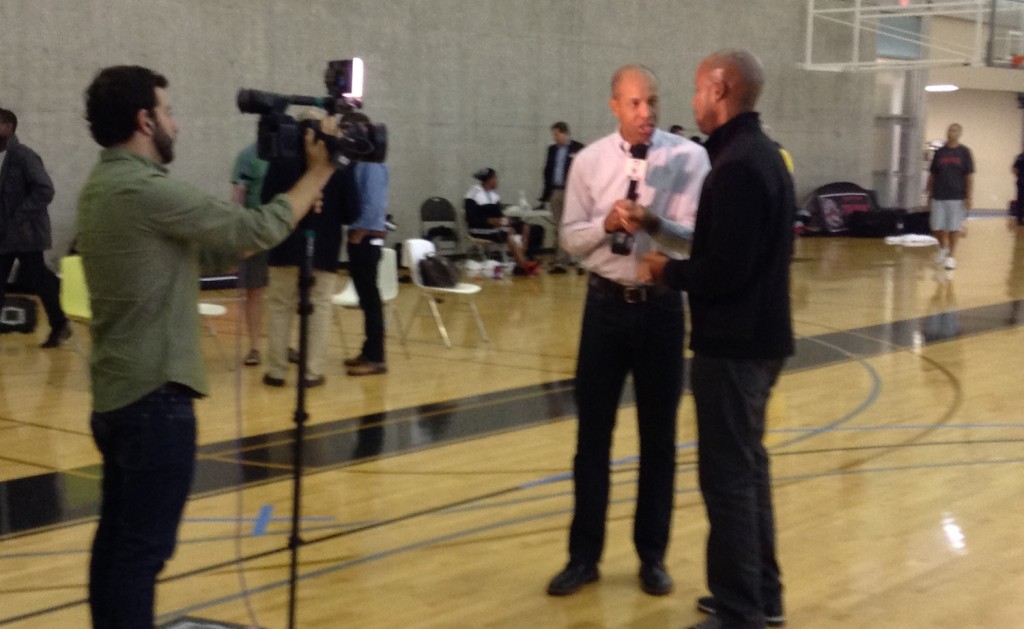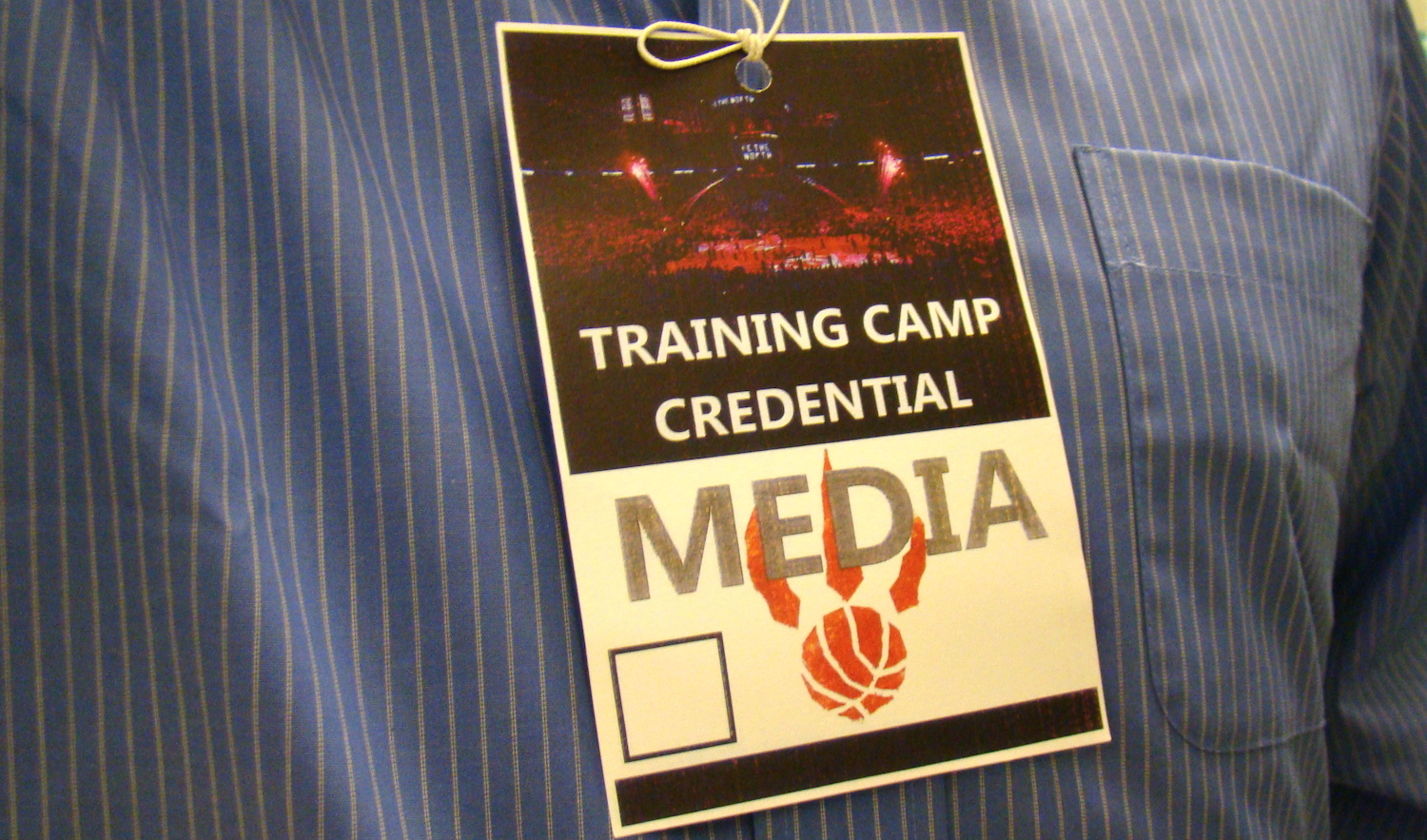If you haven’t already, you can read (and watch) parts one, two and three.
As I mentioned in the first part of this series, this was my first experience as a member of the media at an event like this, and in this, the final chapter, I’m going to touch on the fine line media members have to walk on.
The relationship between the media and NBA teams and players is an interesting and complex one. While each side needs one another, it’s also a bit of an adversarial relationship, as NBA teams and players try to control access and message, and the media, if they’re doing their job, try to get beyond the canned interviews and sound bites they’re so often given.
Most teams and players realize they need the media on their side in order to market themselves fully, so they put up with having to deal with the interview requests and the same questions over and over again (well, unless you’re Gregg Popovich).
And most of the media realizes that they need to walk a fine line between placating to the desires of the NBA teams and players to ensure a good relationship, and writing the real story that may in fact be more critical than the team or player may wish.
Some reporters, especially the beat reporters or announcers, travel with the team and spend so much time around them that they end up building relationships with the players, coaches and executives they see nearly every day. Under these circumstances, it can be difficult to not only remain objective towards people who are like co-workers, but to be able to say the things that need to be said when you have to face these same people day after day.
Imagine being hired to write a blog at your work about your co-workers, some of whom you might even consider friends. You’re probably not going to be as critical as you would if you were writing about people you didn’t know very well and who you didn’t have to see every day. And that might mean that you aren’t as willing to publicly rip the guy in accounting who made a major screwup even though it’s your job to. Therein lies the problem with much of the media.
Ask a reporter privately his or her opinion on something and you’ll often get an answer that they would never say publicly and one that is often more aligned with the truth. But publicly, they have to measure their words, and not just to keep their relationship with the players intact, but because the people they work for may have loyalties of their own.

When ESPN/Grantland’s Bill Simmons called NFL Commissioner Roger Goodell a liar in a podcast, ESPN suspended him for three weeks. And many believe the reason for and length of the suspension was because of the close financial relationship ESPN has with the NFL. Obviously this was an extreme case, and there were other issues, but an example closer to home is Michael Grange.
When Michael Grange was writing for the Globe and Mail, he was often critical of the Raptors. That mostly stopped when he was hired by Sportsnet as an on-air personality, appearing at halftime of Raptors’ games. Like ESPN, Sportsnet has a financially lucrative relationship with not only the NBA but with Maple Leaf Sports and Entertainment, who also owns the Toronto Maple Leafs.
As a blogger who is not beholden to anyone, and until training camp had never met any of the Raptors players, coaches or executives, I’ve been free to express my opinion without fear of repudiation or harming relationships with those I write about.
Now, there are some readers who have felt that I have been overly critical of the Raptors over the years, and many have made their objections known. Back on my old blog, I was quite critical of Andrea Bargnani from the day he was drafted, not because I didn’t like him as a person, but because I never felt he would ever become the type of player who could help a team win. I could do this because I never met him and never thought I would ever meet him, so I didn’t have to censure my opinions of him.
At training camp, while I was a member of the media, I certainly never felt like an insider. And I’d like to think of that as an advantage. At least for what I do.
It was interesting to get to talk to many of the people I have written about, and I genuinely liked the ones I spoke with one-on-one. They all seemed to care about their job and work hard at it. But that doesn’t mean I’m not going to criticize them, and you, as fans, shouldn’t want me to stop. This is what makes blogs often more entertaining reading than many of the traditional media outlets. We tend to be able to write a little more in depth and we’re generally not beholden to anyone, so you get a view that may not be sponsored by the NBA.
Speaking of the traditional media, while Jack Armstrong may be an employee of the Raptors, he’s also a very knowledgeable basketball fan who had a few words to say about what he’s most looking forward to seeing this upcoming season for the Raptors:
Writer’s note: Due to some technical difficulties, some footage, including an interview with Terrence Ross, was deemed unusable by my computer, so you will, unfortunately, never see it.



